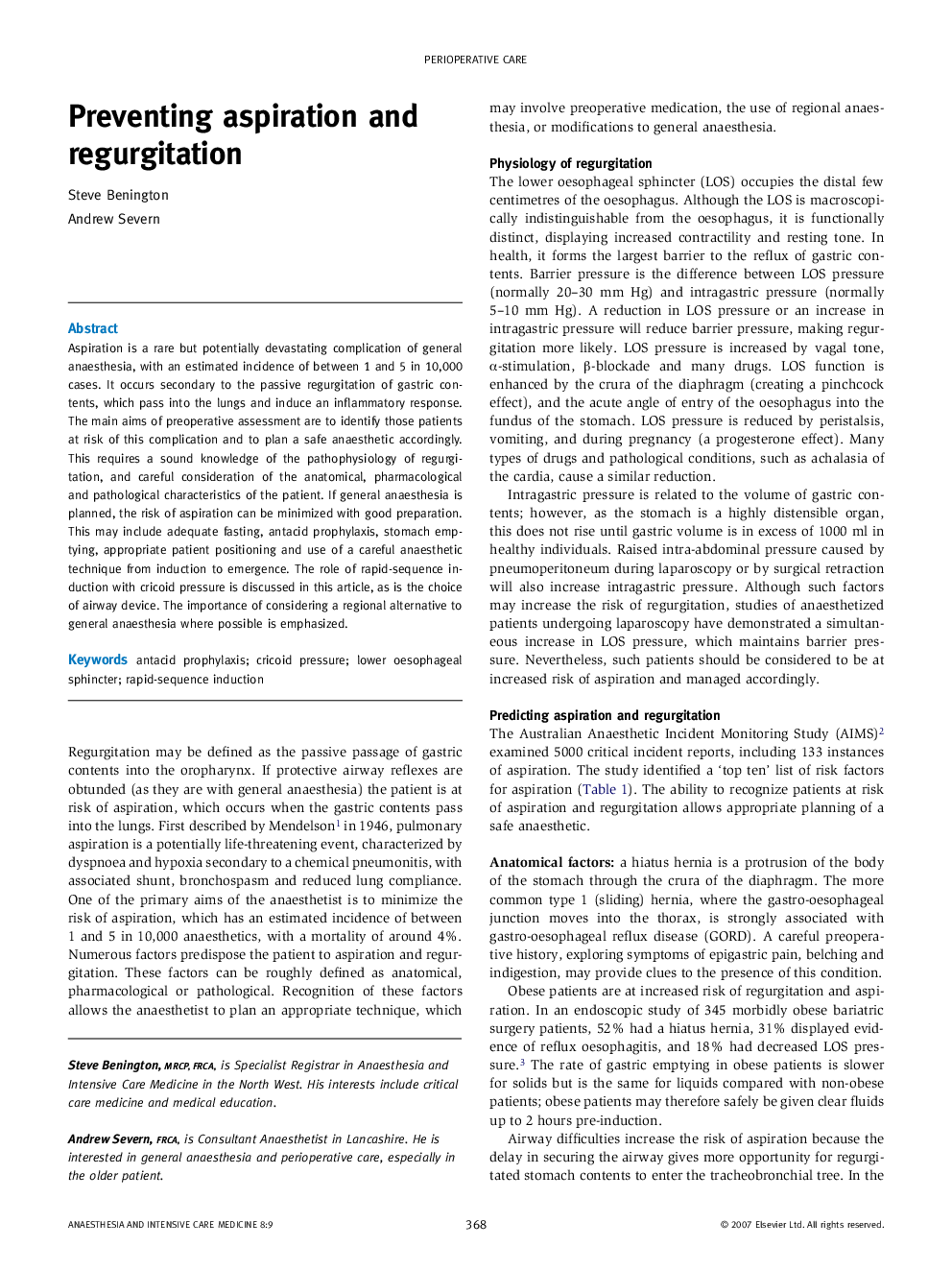| Article ID | Journal | Published Year | Pages | File Type |
|---|---|---|---|---|
| 2743166 | Anaesthesia & Intensive Care Medicine | 2007 | 5 Pages |
Aspiration is a rare but potentially devastating complication of general anaesthesia, with an estimated incidence of between 1 and 5 in 10,000 cases. It occurs secondary to the passive regurgitation of gastric contents, which pass into the lungs and induce an inflammatory response. The main aims of preoperative assessment are to identify those patients at risk of this complication and to plan a safe anaesthetic accordingly. This requires a sound knowledge of the pathophysiology of regurgitation, and careful consideration of the anatomical, pharmacological and pathological characteristics of the patient. If general anaesthesia is planned, the risk of aspiration can be minimized with good preparation. This may include adequate fasting, antacid prophylaxis, stomach emptying, appropriate patient positioning and use of a careful anaesthetic technique from induction to emergence. The role of rapid-sequence induction with cricoid pressure is discussed in this article, as is the choice of airway device. The importance of considering a regional alternative to general anaesthesia where possible is emphasized.
